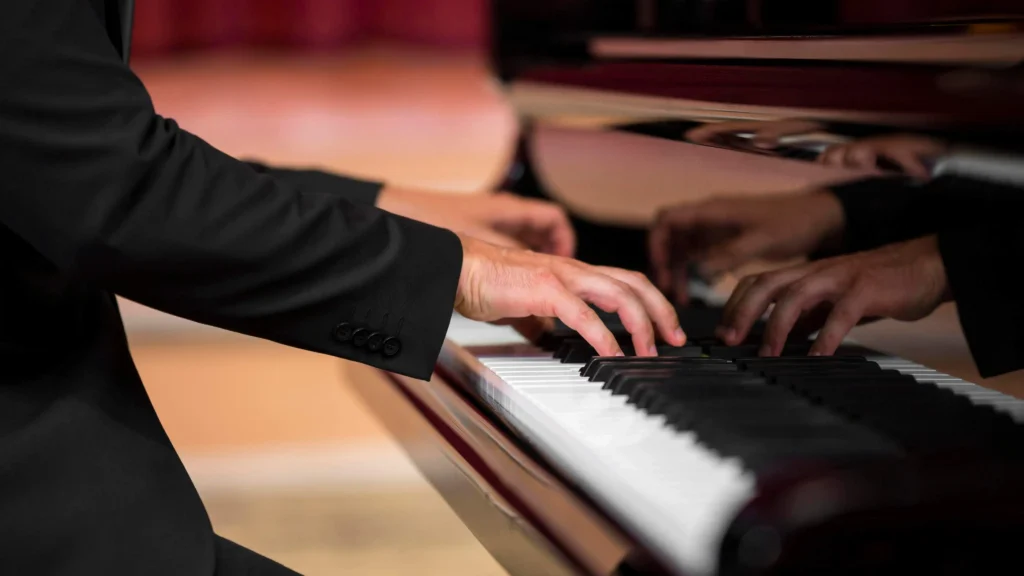Why is Piano a Popular Instrument for Beginning Students to Learn?

Many musicians will often say that their first experience with musical education was taking piano lessons as a child. What are some of the reasons that the piano is such a popular instrument for beginning students to learn?
Read our blog about piano lessons for beginners to find out!
1. It’s easy to start playing right away:
Any student at any age can push a key on the piano and the note will sound. The sound is clean and unlike other instruments, the piano does not require complicated finger, arm, or breathing patterns to make a sound. Since the piano is easier to physically play, beginning students of a piano will learn the fundamentals of music at a quicker pace than other instruments.
2. It’s a fulfilling instrument for beginning students to learn:
Because you can play more than one note on the piano, the music that a student will practice on piano is satisfying even at the beginning level. In addition, many pop and rock songs can be played on the piano. As such, piano lessons are fun, engaging, and rewarding.
3. Musical concepts are visually apparent on a piano:
The majority of fundamental concepts of music theory such as half steps, scales, and chords are much easier understood on a piano than any other instrument. After all, a linear instrument allows a much clearer view, which is why piano lessons are also the main choice when students are interested in improving their composition, harmony, and music theory knowledge.
4. Piano students can successfully transition to any other instrument:
Music students who begin their studies on piano can transition to any other musical instrument that they would like to learn. Since piano students taking lessons will have learned how to read music in both bass clef and treble clef, the fundamentals of rhythm, as well as many other music basics, the transition to learning the new instrument will be smooth.
5. Piano lessons are scientifically proven to improve cognitive abilities:
Beginner piano students are tasked with reading sheet music while playing the correct notes and maintaining proper rhythm. This utilizes various areas of the brain all at the same time, which under consistent practice trains beginner students to concentrate for longer periods of time
6. Partaking in piano lessons increases the spatial and motor coordination of the brain:
Since consistent beginner piano practice requires the usage of both: a student’s hands and feet, consistent piano practice leads to improved motor skills and the strengthening of communication between various parts of the brain.
7. Individuals who play the piano are better able to express themselves:
Through creative pieces that beginner piano students can compose, these students are better able to express themselves through the songs that they play. As such, piano students experience a much better emotional well-being
8. Piano practice leads to improvement in memorization ability:
Most beginner piano students begin their journey by memorizing and then playing their favorite musical pieces, and as such, they greatly improve their short and long-term memorization capabilities.
9. Piano playing improves critical thinking and problem-solving skills:
It is common for beginner piano students to encounter challenging rhythms and difficult note combinations. Figuring out how to overcome such challenges greatly improves analytical and critical thinking skills
10. Students who consistently attend piano lessons have improved listening skills:
Beginner piano students are specifically taught by their instructors to actively listen to the sound they produce to ensure accuracy and proper flow in their rhythm. In turn, piano students develop a sharp ear for music that detects slight differences in sound.
For information about piano lessons at the Altadena Academy of Music, please call (626) 296-0799 or use our email contact form.
